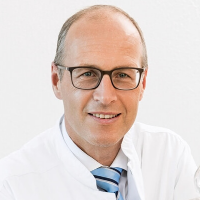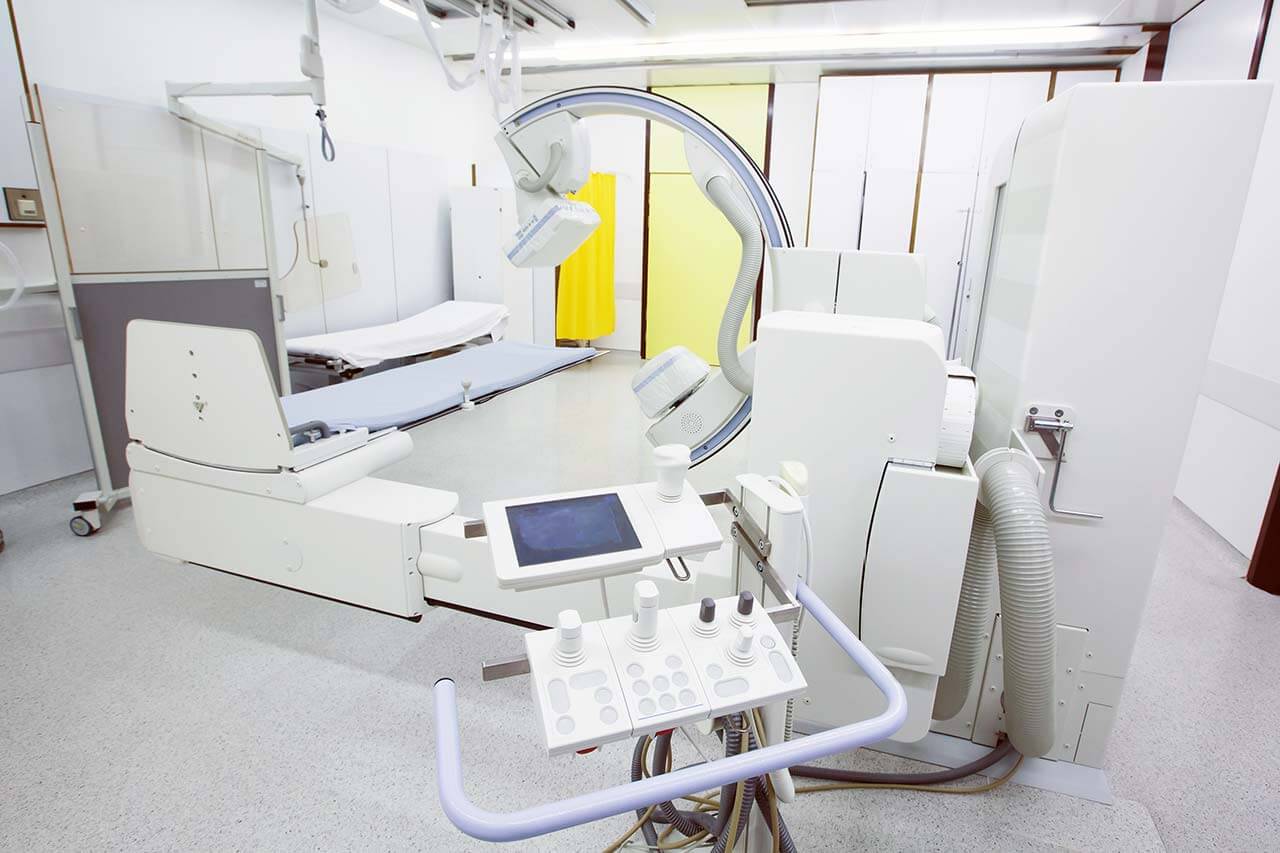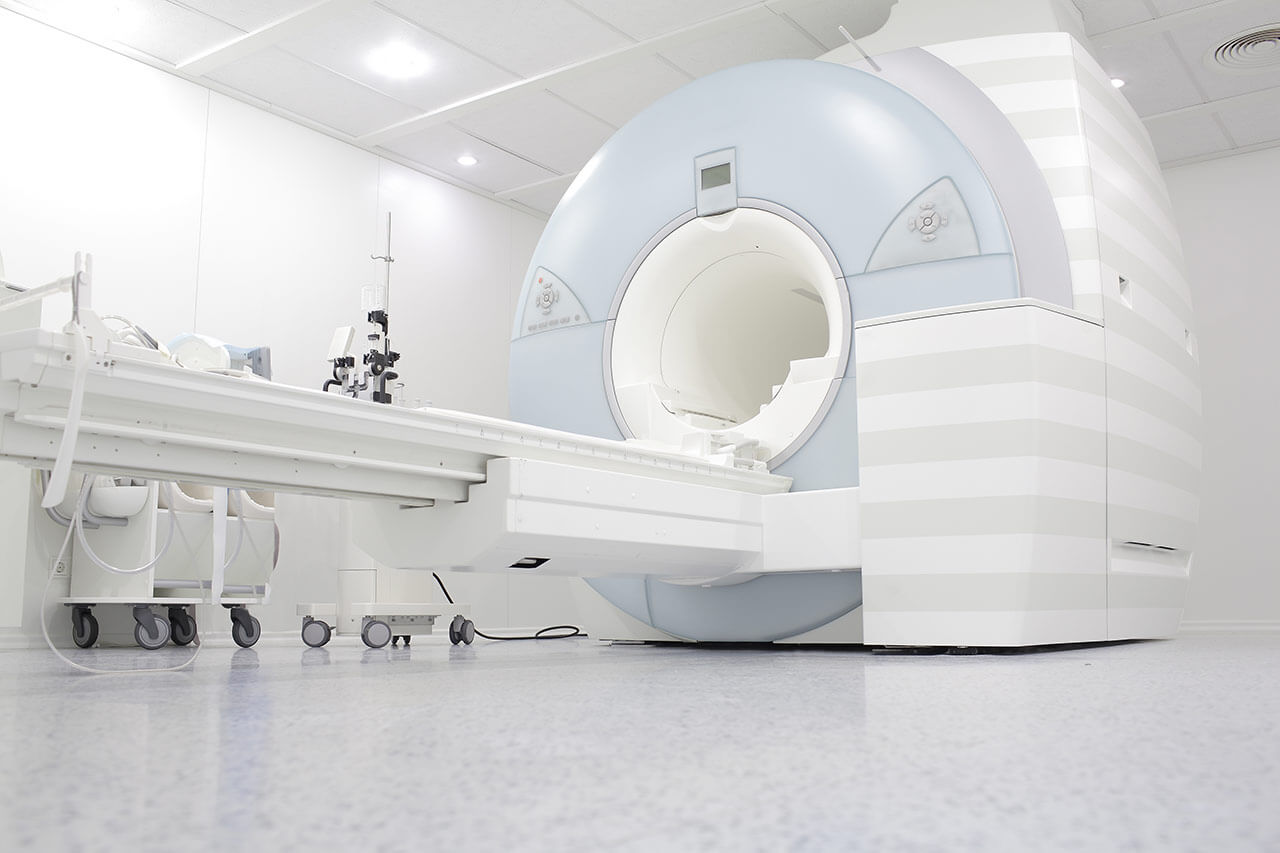
About the Department of Adult and Pediatric Orthopedics at Hannover Medical School (MHH)
According to the prestigious Focus magazine, the Department of Adult and Pediatric Orthopedics at the Hannover Medical School ranks among the top German medical facilities in the area of its specialization!
The department provides highly effective treatment for the full spectrum of musculoskeletal diseases in patients of all age groups, including children. The medical facility is one of the largest and the most prestigious Orthopedic Centers in Germany. Here the patients can get top-class medical care in the following areas: spinal surgery, joint replacement surgery and reconstructive surgery, correction of musculoskeletal deformities, treatment of foot diseases, pediatric orthopedics and neuro-orthopedics. More than 40,000 patients undergo treatment in the department annually. Thanks to the high competence of doctors and the use of advanced conservative treatment methods, many patients, including those with complex clinical cases, manage to avoid surgery. If the patient requires surgery, the department's surgeons most often resort to minimally invasive techniques. The department is headed by Prof. Dr. med. Henning Windhagen.
The department has unique experience in joint replacement surgery. The high quality of medical care in the department is confirmed by the certification as the Maximum Care Endoprosthetics Center. During the operation, special attention is paid to the careful treatment of muscles and tendons. The department uses the most sparing surgical techniques, which are safe for the patient and guarantee minimal blood loss. The most popular operations in this area are knee and hip replacement surgeries. As of today, the department performs such operations using minimally invasive techniques, which involve surgical access through several small incisions. When performing the surgical procedure, the surgeon can see the image of the operating field on a large screen, in multiple zoom. The implantation of an artificial joint is performed under the guidance of progressive navigation systems. Such an approach allows the doctors to guarantee the most accurate positioning of the prosthesis, which determines the success of the operation. The service range in the field of joint replacement surgery also includes revision interventions to replace previously implanted prostheses. The operations of this kind are considered particularly difficult, but the department's specialists successfully cope with them.
The department is also an advanced center for conservative and surgical treatment of spinal diseases. Conservative treatment involves the use of all options to avoid surgery: drug therapy, physiotherapeutic procedures (for example, massage, electrotherapy), therapeutic exercises, treatment with modern corsets, etc. If conservative therapeutic methods do not give positive results, specialists consider the possibility of surgical treatment. The department uses the full range of modern surgical procedures, including stabilizing surgery in case of prolapse or displacement of intervertebral discs, surgery to replace intervertebral discs, surgery for spinal stenosis, spinal fractures, as well as surgery for severe forms of scoliosis and kyphosis. Most spinal surgeries are performed using minimally invasive techniques. In addition, the department's operating rooms are equipped with advanced surgical microscopes, neuromonitoring systems and other devices, which allow surgeons to carry out not only effective, but also the safest surgical treatment of spinal diseases.
Children with musculoskeletal diseases are treated by a specially trained team of orthopedists with extensive clinical experience. At the stage of treatment regimen planning, the specialists take into account not only the diagnosis and general condition of the child, but also his age, as well as the peculiarities of the development of the child's body at this age. The team of pediatric orthopedists treats more than 3,500 young outpatients every year. In addition, the department annually performs more than 800 operations for orthopedic and neuro-orthopedic diseases in children and adolescents. In especially complex clinical cases, specialists from partner clinics are involved (for example, from the Child Care Center Bremen, the Werner Otto Institut Hamburg).
The department's service range includes:
- Shoulder surgery
- Shoulder replacement surgery (for example, use of a reverse prosthesis, surface joint replacement)
- Joint replacement using anatomical techniques (implantation of a hemiprosthesis, total replacement surgery)
- Revision shoulder replacement surgery
- Rotator cuff repair
- Shoulder stabilization
- Acromioclavicular joint stabilization
- Surgery to treat shoulder impingement syndrome
- Treatment of calcifying shoulder tendinitis
- Knee surgery
- Cruciate ligament reconstruction
- Reconstruction or replacement of menisci
- Restoration of the cartilaginous lining of the joint (from cell therapy to the use of the HemiCAP technique)
- Patella stabilization
- Corrective osteotomy
- Implantation of a sliding prosthesis
- Total or partial knee replacement surgery
- Joint replacement surgery
- Knee and hip replacement surgery (including particularly severe cases)
- Revision replacement surgery and joint replacement surgery for infectious diseases
- Joint replacement surgery in case of cancers
- Joint replacement surgery in case of rheumatism, osteoporosis and necrosis
- Bone tissue transplantation
- Implantation of individually selected and custom-made prostheses
- Minimally invasive interventions on the hip and knee joints
- Operations using navigation systems
- Hip and pelvic surgery
- Treatment of hip impingement syndrome (with joint preservation)
- Bone and soft tissue surgery
- Corrective osteotomy of the femur and pelvic bones
- Treatment of femoral head necrosis
- Correction of musculoskeletal deformities
- Comprehensive corrections to eliminate deformities
- Bone elongation by the Ilizarov technique
- Orthopedic oncology
- Surgical treatment of bone tumors
- Joint replacement surgery in case of cancers
- Reconstruction techniques using biological materials
- Surgical treatment of bone metastases
- Surgical treatment of soft tissue sarcoma
- Treatment of benign tumors of soft tissues and bones
- Treatment of spinal diseases
- Conservative treatment of spinal diseases
- Drug therapy
- Physiotherapeutic procedures
- Therapeutic exercises
- Manual therapy
- Osteopathic therapy
- Treatment with corsets
- Surgical treatment of spinal diseases
- Intervertebral disc surgery
- Treatment of spinal stenosis
- Balloon kyphoplasty in osteoporosis
- Minimally invasive decompression techniques
- Intervertebral disc replacement
- Displaced vertebrae correction
- Placement of dynamic implants
- Scoliosis and kyphosis correction
- Treatment of diseases of the cervical spine
- Spinal infiltration/periradicular therapy (PRT)
- Surgical treatment of spinal fractures
- Conservative treatment of spinal diseases
- Foot surgery
- Correction of the posterior foot deformities
- Upper ankle cartilage reconstructive surgery
- Foot ligament reconstructive surgery
- Ankle replacement surgery
- Revision ankle replacement surgery (also in infections)
- Arthrodesis
- Soft tissue surgery
- Ankle arthroscopy
- Tendon transposition
- Treatment of Charcot foot
- Revision interventions
- Correction of the anterior foot deformities
- Hallux valgus and hallux rigidus correction
- Soft tissue surgery (tendon surgery)
- Arthrodesis
- Correction of the little toe
- Revision interventions
- Treatment of foot cancers
- Correction of the posterior foot deformities
- Pediatric orthopedics
- Treatment of flat feet combined with external clubfoot
- Correction of limb deformities
- Correction of skull deformities
- Surgery for growth disorders
- Treatment of Perthes disease
- Treatment of slipped capital femoral epiphysis
- Treatment of scoliosis
- Treatment of torticollis
- Treatment of hip dysplasia, hip dislocation
- Treatment of clubfoot
- Arthroscopic surgery
- Conservative therapy
- Neuro-orthopedics (treatment of orthopedic diseases developed due to the following diseases)
- Infantile cerebral palsy
- Spina bifida
- Arthrogryposis
- Hereditary syndromes
- Metabolic disorders
- Muscular dystrophy
- Spinal muscular atrophy
- Chromosomal abnormalities
- Other medical services
Curriculum vitae
From 1984 to 1991, Prof. Henning Windhagen studied medicine at the Philipps University of Marburg and the University of Bern (Switzerland). His doctoral thesis defense was followed by activities in the field of orthopedic surgery and biomechanical sciences at the Harvard Medical School in Boston, USA. Also, Dr. received scholarships from the Else Kröner Fresenius Foundation and Braun Foundation. After working as an Assistant Physician in the Department of Traumatology at the Humboldt University of Berlin and at the Charité Campus Virchow, Prof. Windhagen had his board certification in Orthopedics and became a Research Assistant in the Department of Orthopedics at the Hannover Medical School, where in 2001 he became an Associate Professor. In 2004, the doctor also received Venial Legendi in Biomedical Engineering (Hannover University). Since 2006, Windhagen has been Full Professor of Orthopedics, Head of the Department of Adult and Pediatric Orthopedics at the Hannover Medical School, as well as Head of the Laboratory for Biomechanics and Biomaterials. In 2007, Prof. Windhagen became Co-Head of the CrossBIT Research Center (Center for Biomaterials, Implant Immunology and Medical Technologies). In 2008, he headed OrthoGO (Institute of Orthopedic Analysis and Analysis of Movements). Since 2012, Prof. Windhagen has been a Board Member of the Center for Implant Research and Development of Lower Saxony (NIFE).
Main Research Focuses
- Implant research.
- Computerized surgery (navigation surgery).
- Biomechanics.
- Study of growth factors and cytokines.
- Degradable biomaterials in osteonecrosis.
- Knee and hip surgery (especially endoprosthetics and revision surgery to replace joints).
Membership in the Professional Societies
- 2008 - 2011 Treasurer of the German Society for Reconstructive Extremity Surgery (A.S.A.M.I).
- 2009 - 2011 Deputy Head of the Conference of Ordinary Professors in Orthopedics.
- 2010 - 2012 Vice President of the Section of Fundamental Research of the German Society for Orthopedics and Orthopedic Surgery.
- 2014 Elected as the President of the German Society for Orthopedics and Orthopedic Surgery (DGOOC) and the German Society of Orthopedics and Traumatology (DGOU).
- President of the Association of Orthopedic Research (AFOR) and Secretary of the German Society for Endoprosthetics.
Awards and Honors
- 1990 Poster Prize of the German Society of Traumatology (DGU).
- 1999 - 1990 Poster Prize, Section for Fundamental Research of the German Society for Orthopedics and Traumatology (DGOT).
- 1999 Innovation Contest for Promotion of Medical Technologies, Financing Program of the Federal Ministry of Education and Research (BMBF).
- 2000 Innovation Contest for Promotion of Medical Technologies, Financing Program of the Federal Ministry of Education and Research (BMBF).
Photo of the doctor: (c) Medizinische Hochschule Hannover (MHH)




